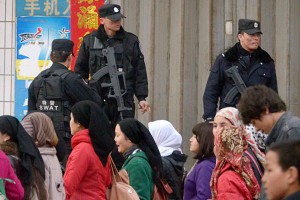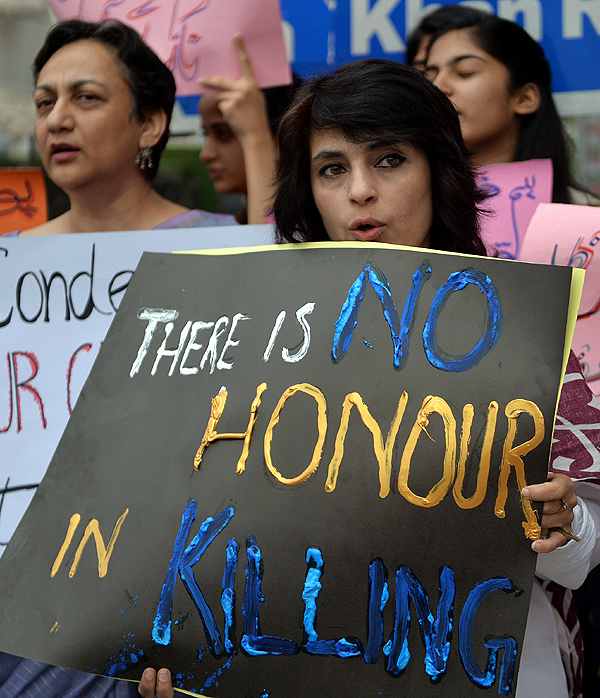China combines enforcement and aid to curb Uighur separatism
Monday, July 7th, 2014 4:49:08 by Khalil Khan
The Silk Road. A land of opportunity. A territory rich in natural resources. These stereotypes of Chinese citizens on the Chinese border province of Xinjiang, mainly inhabited by ethnic Uighurs, came on top of a very different image on July 5, 2009: that of violence. Today, Xinjiang fulfills the fifth anniversary of the worst riots in recent history in a situation more tense than ever.
Five years later, the situation has worsened. In recent months the violence has spread outside the province. If in October three people died in a fire at a vehicle in front of the portrait of Mao Zedong in Tiananmen Square flagship Peking in what authorities called a “terrorist attack ” in March slashed 29 people died in a train station in the city of Kunming, in southwest China. The Chinese government has attributed these incidents to extremist groups from Xinjiang.
In the province itself also increased violence. In May, an explosion at a market in Urumqi left 39 dead and over 90 injured. Nearly 200 people have died in violent incidents in the past year, according to official figures.
On July 5, 2009 a group of Uighurs took to the streets in Urumqi, Xinjiang ‘s capital, to protest the death in a southern Chinese factory two workers of this ethnic group, Muslim and Turkmen peoples akin to of Central Asia. The protest degenerated into clashes between Uighurs, members of the Han- majority ethnic group in China, and has implemented quickly in Xinjiang last twenty years attracted by the economic and personal growth of the security forces. When the situation was brought under control the official casualty toll was 197 dead and over 1,700 injured.
Disturbances of those dimensions have not been repeated since. But they marked a before and after.” July 5 represented the starting point of a new historical stage, which can be classified as ‘ new stage of conflict,” says journalist and expert on Xinjiang Ouyang Hongliang.
Uighurs complain factors such as economic inequality and what they see as discrimination have at work, or on their culture, religion and language. They cite, as an example, every year Beijing officials imposed ban on party members, students or teachers during the Muslim fasting month of Ramadan, which this year coincides with the anniversary of the riots. The Chinese government says its policies are intended to benefit the Uighurs and blames the violence on what it considers foreign extremism interference.
According to the World Uyghur Congress organization that brings together representatives of this ethnic group in exile, the anniversary “reveals how relationships between Uighurs and Han have deteriorated as a result of the large influx of Chinese settlers in the region in the past two decades. As the state remains the main arbiter of the current situation also has the ability to achieve a peaceful solution to the conflict and recognize the suffering of the Uighur people. Peace can be achieved only through constructive and collaborative dialogue between the two parties. “
Meanwhile, the official news agency Xinhua, the only Chinese state media has echoed that remembrance, said that ” terrorists and extremists are those who carry the ancient Uighur culture danger of extinction.” ” China ‘s battle against terrorism in Xinjiang is part of the global war on terrorism. Winning this battle is to protect the Uighur culture, “he adds.
Beijing has responded to violence with an ” iron fist” in the region. In recent months there have been hundreds of arrests, convictions and numerous executions and mass trials. The authorities offer succulent rewards that can reach 5,000 euros in a province where the minimum monthly salary does not exceed 200 euros, by information enabling the arrest of suspects.
At the same time, it has increased its allocation to the province, to try to combat poverty – among Uighur much higher than among the have – which considered the cradle of terrorism.
Economic measures that Beijing has implemented are varied. Subsidies range from Uighur to housing construction or infrastructure as the laying of high-speed train between Urumqi and Lanzhou in western China. Even the tourist offer of Xinjiang reached 500 yuan, about 70 euros, to travel to the region.
But for now, the mutual distrust between the two communities persists. And the police presence is still visible on the streets during the anniversary.
Tags: China, Extremism, Uighur, violence, XinjiangShort URL: https://www.newspakistan.pk/?p=46052

















